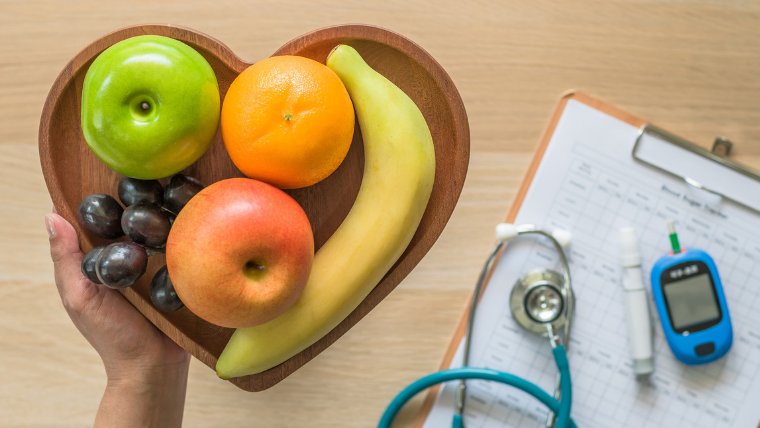
The Role of Nutrition in Diabetes Management
Share
Diabetes is a chronic disease that affects millions of people worldwide and is characterized by high levels of sugar (glucose) in the blood. There are two main types: type 1 diabetes, which results from an autoimmune problem that prevents the production of insulin, and type 2 diabetes, which is often associated with factors such as excess weight, a sedentary lifestyle and an unbalanced diet. Regardless of the type, nutrition plays a fundamental role in its prevention and control.
Importance of a Balanced Diet
A balanced diet helps maintain healthy blood glucose levels, reducing the risk of complications such as cardiovascular problems, neuropathy and kidney failure. Choosing the right foods can also improve insulin sensitivity and promote overall health.
Nutritional Strategies for Diabetes
- Meal Planning : It is essential to spread meals throughout the day to avoid spikes in blood sugar. Eating at regular intervals allows for better control of blood sugar levels.
- Focus on Complex Carbohydrates : Opt for whole foods, such as brown rice, oats, quinoa and sweet potatoes, which are absorbed more slowly and help stabilize blood sugar levels.
- Adequate Fiber Intake : Foods rich in fiber, such as vegetables, fruits with skin and legumes, slow the absorption of glucose and help control appetite.
- Avoid Simple Sugars : Reduce or eliminate your intake of sweets, soft drinks, and processed products with added sugar.
- Fat Control : Favoring healthy fats, such as olive oil, avocado, nuts and fish rich in omega-3, reduces the risk of cardiovascular diseases.
- Moderation in Protein Consumption : Adequate protein intake is important, but in cases of kidney complications, consumption should be adjusted with professional guidance.
Importance of Hydration
Staying hydrated is crucial, especially for people with diabetes. Water is always the best option, helping to eliminate excess glucose through urine.
Personalized Nutrition
Each person with diabetes has unique needs. Working with a dietitian is essential to create a meal plan tailored to your health condition, personal preferences, and individual goals.
Benefits of Physical Exercise in Combination with Nutrition
Combining a balanced diet with regular exercise can help control diabetes. Exercise increases insulin sensitivity and helps manage body weight, two crucial factors for controlling blood sugar levels.
Conclusion
Nutrition is one of the fundamental pillars in managing diabetes, contributing to a better quality of life and preventing complications. Combined with an active lifestyle and regular medical monitoring, it can make all the difference in the health of people with diabetes.
Suggested Reading : Find out more about how exercise can help manage diabetes in our article "Exercise and Diabetes: A Powerful Combination" .
Related Articles
- Benefits of Intermittent Fasting for Weight Loss
- Insulin Control: Effects of Physical Exercise
- Diet and Exercise : How to Achieve Sustainable Results
- The Importance of Hydration in Intermittent Fasting
- How to Create Lasting Exercise Habits
- The Role of Nutrition in Diabetes Management
- Benefits of Strength Training for Metabolic Health
- Diet and Hormones: What Should You Know?
- The Importance of Sleep in Physical Performance
- Autophagy: The Magic of Intermittent Fasting
Start today and transform your health!
Health Coach Consulting: The First Step to Your Complete Well-Being
Health is not limited to the physical – it is a balance between body and mind. Our personalized consultancy health coach offers you expert guidance to develop healthy habits and achieve your goals in a sustainable way. With the support of a health coach dedicated, you will find strategies adapted to your needs, promoting the well-being you deserve.
Discover the impact of individual support and take the first step towards transforming your health from the inside out.



